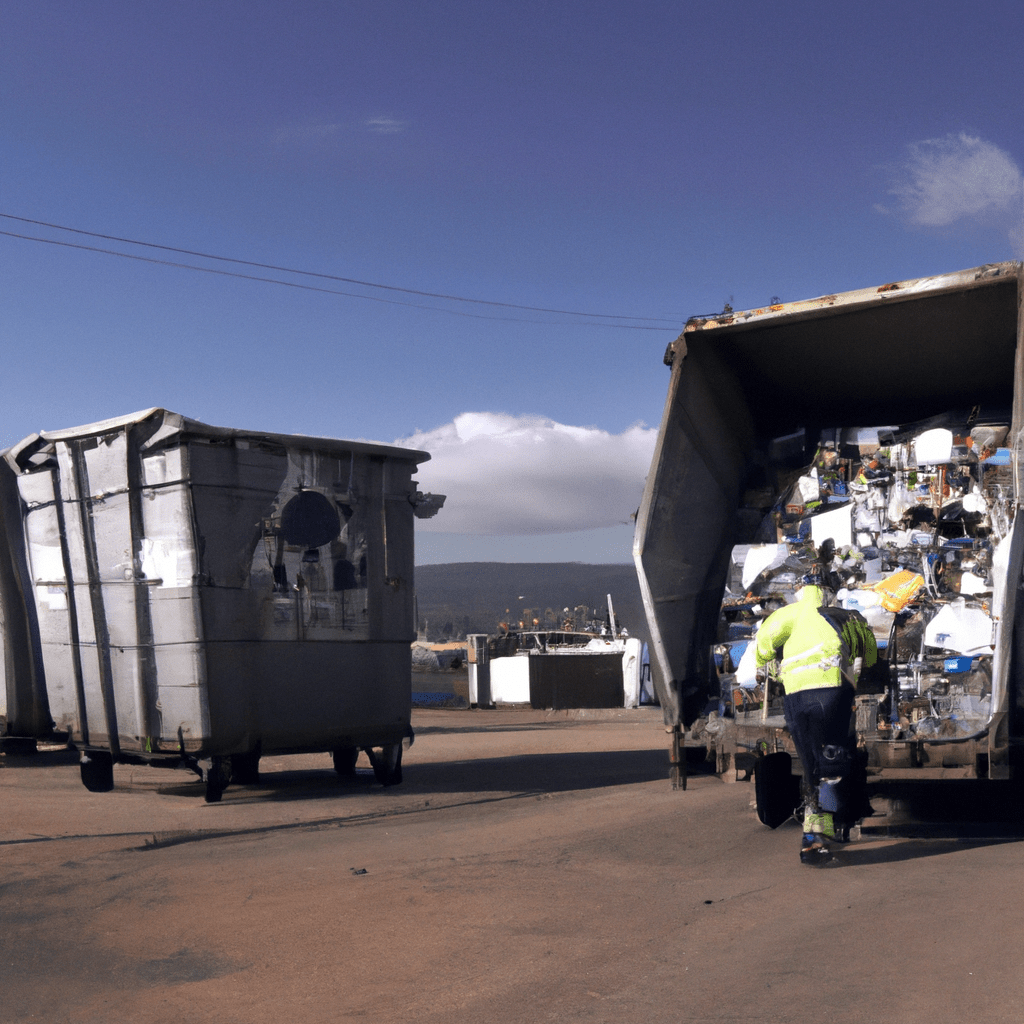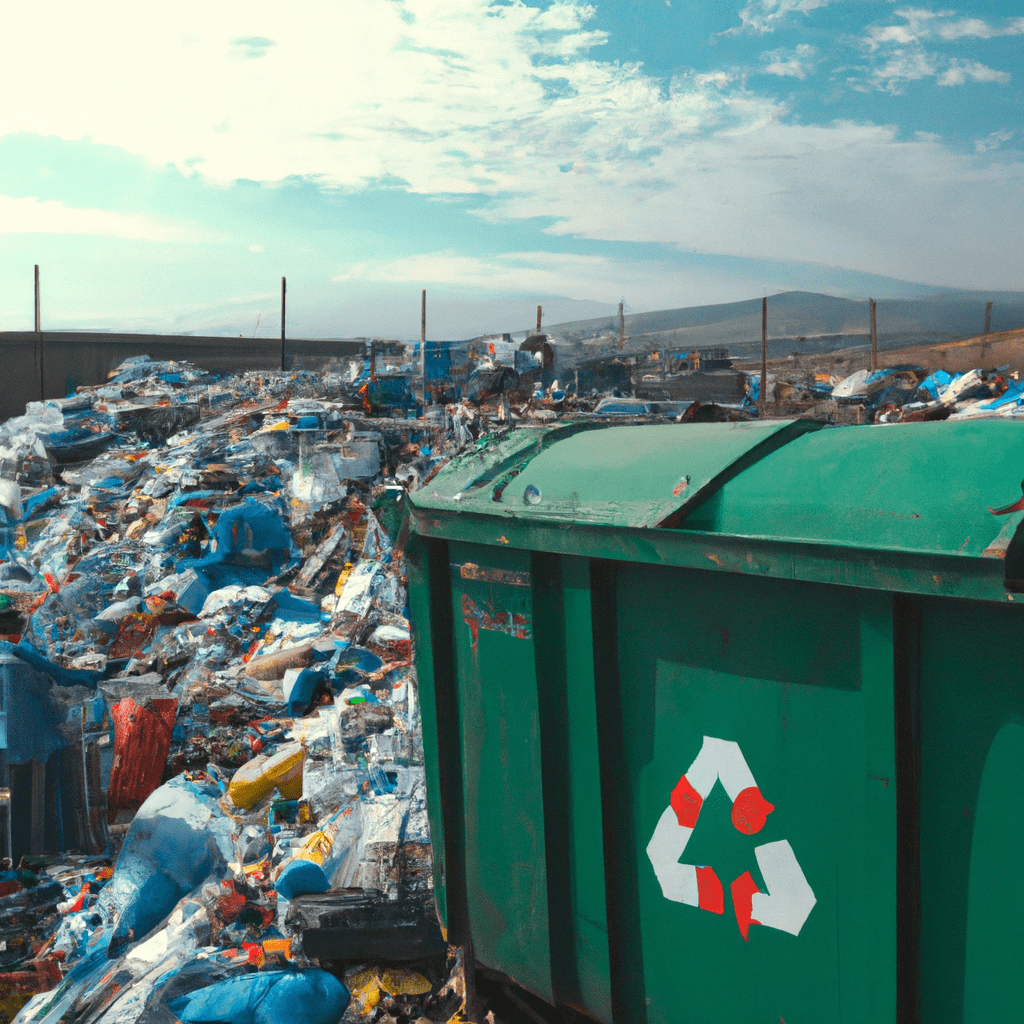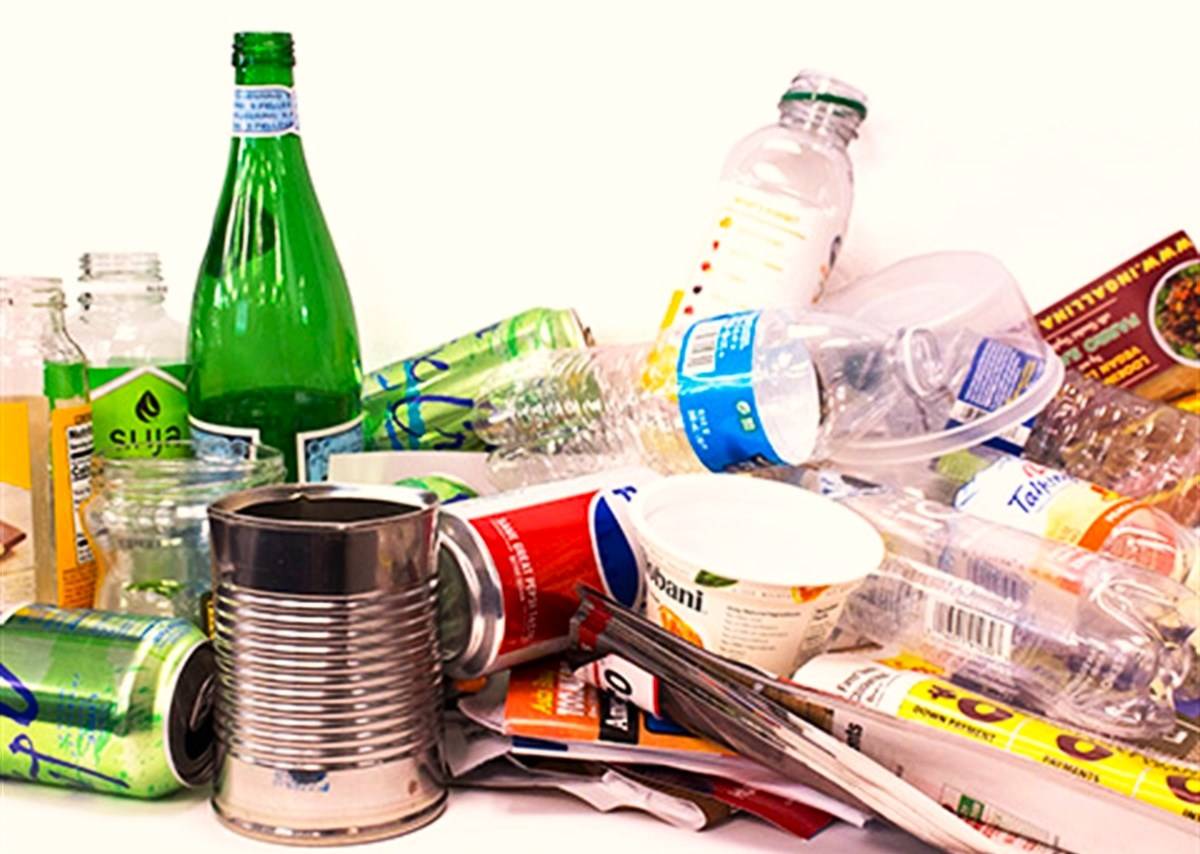Unlock the Potential of South Africa’s Waste: Turn Waste into Wealth with Recycling Business Opportunities!
Waste to Wealth: Recycling Business Opportunities in South Africa are an important resource for entrepreneurs looking to capitalize on the growing demand for recycled materials in the country.
Table of Contents
South Africa is a rapidly developing nation with a growing population and a growing demand for resources. As a result, the country has seen an increase in the amount of waste generated, leading to an urgent need for waste management solutions.
Waste to Wealth: Recycling Business Opportunities in South Africa provides an overview of the current state of the recycling industry in South Africa, as well as potential business opportunities for entrepreneurs looking to capitalize on the growing demand for recycled materials.
It also provides an overview of the legal and regulatory framework governing the recycling industry in South Africa, as well as the potential risks and rewards associated with starting a recycling business.

The Future of Waste to Wealth Recycling Businesses in South Africa
The waste-to-wealth recycling business model has been gaining traction in South Africa in recent years, as the country seeks to reduce its environmental footprint and create economic opportunities. This model involves the collection, sorting, and processing of waste materials into valuable resources that can be used in a variety of industries. The waste-to-wealth recycling business model has the potential to create jobs, reduce pollution, and generate revenue for the country.
In South Africa, the waste-to-wealth recycling business model is still in its infancy. However, the government has taken steps to encourage the growth of this sector. In 2019, the Department of Environmental Affairs launched the Waste to Wealth Initiative, which aims to promote the development of waste-to-wealth businesses in the country. The initiative provides funding and technical assistance to entrepreneurs and businesses that are interested in pursuing this model.
The waste-to-wealth recycling business model has the potential to create thousands of jobs in South Africa. The collection and sorting of waste materials require a large workforce, and the processing of these materials into valuable resources can create additional employment opportunities. Furthermore, the sale of these resources can generate revenue for the country.
The waste-to-wealth recycling business model also has the potential to reduce pollution in South Africa. By diverting waste materials from landfills and other disposal sites, this model can help to reduce the amount of waste that is released into the environment. Additionally, the reuse of materials can help to reduce the demand for new resources, which can help to reduce the amount of pollution that is created during the extraction and production of these materials.
The waste-to-wealth recycling business model has the potential to be a major contributor to the South African economy. With the right support and investment, this model can create jobs, reduce pollution, and generate revenue for the country. As the sector continues to grow, it is likely that the waste-to-wealth recycling business model will become an increasingly important part of the South African economy.
The Role of Technology in Waste to Wealth Recycling Businesses in South Africa
South Africa is a country with a growing population and a finite amount of resources. As such, it is essential to find ways to reduce waste and make use of existing resources. Waste to wealth recycling businesses are one way to do this, and technology plays an important role in their success.
Technology is used in waste to wealth recycling businesses in South Africa to help identity, sort, and process materials. For example, advanced sorting systems can be used to separate different types of materials, such as paper, plastic, and metal. This helps to ensure that the materials are properly sorted and can be used for the intended purpose. Additionally, technology can be used to identify materials that are not suitable for recycling, such as hazardous materials.
Technology can also be used to process materials for reuse. For example, plastic can be melted down and reformed into new products. This helps to reduce the amount of waste that is sent to landfills and reduces the need for new materials. Additionally, technology can be used to create new products from recycled materials. For example, recycled plastic can be used to create furniture, toys, and other items.
Finally, technology can be used to track and monitor the progress of waste to wealth recycling businesses. This helps to ensure that materials are being properly sorted and processed and that the business is meeting its goals. Additionally, technology can be used to measure the environmental impact of the business, such as the amount of energy and water used in the process.
In conclusion, technology plays an important role in waste to wealth recycling businesses in South Africa. It can be used to identify, sort, and process materials, as well as to create new products from recycled materials. Additionally, technology can be used to track and monitor the progress of the business and measure its environmental impact. By utilizing technology, waste to wealth recycling businesses can help to reduce waste and make use of existing resources.

The Potential of Waste to Wealth Recycling Businesses to Create Jobs in South Africa
South Africa is facing a growing unemployment crisis, with the official unemployment rate standing at 29.1% in the first quarter of 2020. This has led to an increased focus on creating jobs and stimulating economic growth. One potential solution to this problem is the development of waste to wealth recycling businesses.
Waste to wealth recycling businesses are those that take waste materials and turn them into valuable products. This can include anything from turning plastic bottles into clothing to turning food waste into compost. These businesses have the potential to create jobs in South Africa by providing employment opportunities for those who may not have access to traditional employment.
The potential for waste to wealth recycling businesses to create jobs in South Africa is significant. For example, a study conducted by the University of Pretoria found that the recycling industry in South Africa could create up to 1.2 million jobs by 2030. This would be a major boost to the economy and could help to reduce the unemployment rate.
In addition to creating jobs, waste to wealth recycling businesses can also help to reduce the amount of waste that is sent to landfills. This is important as South Africa is facing a growing waste crisis, with the amount of waste sent to landfills increasing by 5% each year. By diverting waste away from landfills, these businesses can help to reduce the environmental impact of waste.
Finally, waste to wealth recycling businesses can also help to stimulate economic growth. By creating jobs and reducing the amount of waste sent to landfills, these businesses can help to create a more sustainable economy. This can lead to increased economic activity and improved living standards for all South Africans.
In conclusion, waste to wealth recycling businesses have the potential to create jobs and stimulate economic growth in South Africa. By providing employment opportunities and reducing the amount of waste sent to landfills, these businesses can help to reduce the unemployment rate and create a more sustainable economy.
The Benefits of Investing in Waste to Wealth Recycling Businesses in South Africa
Waste to wealth recycling businesses are becoming increasingly popular in South Africa, as they offer a range of benefits to both the environment and the economy. By investing in these businesses, individuals and companies can help to reduce the amount of waste that is sent to landfills, while also creating jobs and generating income.
One of the main benefits of investing in waste to wealth recycling businesses in South Africa is that it helps to reduce the amount of waste that is sent to landfills. By recycling materials such as paper, plastic, and glass, these businesses can help to reduce the amount of waste that is sent to landfills, which can help to reduce the environmental impact of waste disposal. Additionally, recycling businesses can help to reduce the amount of energy and resources that are used to create new products, as recycled materials can be used to create new products.
Another benefit of investing in waste to wealth recycling businesses in South Africa is that it can help to create jobs and generate income. By investing in these businesses, individuals and companies can help to create jobs for people in the local community, which can help to reduce poverty and improve the quality of life for those living in the area. Additionally, these businesses can generate income for investors, as they can sell the recycled materials to other businesses or individuals.
Finally, investing in waste to wealth recycling businesses in South Africa can help to improve the country’s economy. By creating jobs and generating income, these businesses can help to stimulate the economy and create a more prosperous future for the country. Additionally, by reducing the amount of waste that is sent to landfills, these businesses can help to reduce the amount of money that is spent on waste disposal, which can help to reduce the cost of living for everyone in the country.
In conclusion, investing in waste to wealth recycling businesses in South Africa can offer a range of benefits to both the environment and the economy. By reducing the amount of waste that is sent to landfills, creating jobs, and generating income, these businesses can help to improve the quality of life for everyone in the country. Additionally, these businesses can help to reduce the amount of money that is spent on waste disposal, which can help to reduce the cost of living for everyone in the country.
The Role of Government in Promoting Waste to Wealth Recycling Businesses in South Africa
The South African government has a critical role to play in promoting waste to wealth recycling businesses in the country. Waste to wealth recycling businesses are those that convert waste materials into valuable products, such as plastics, paper, metals, and glass. These businesses can help reduce the amount of waste that is sent to landfills, while also creating jobs and generating income.
The South African government can promote waste to wealth recycling businesses in a number of ways. First, it can provide financial incentives to encourage businesses to invest in waste to wealth recycling. This could include tax breaks, grants, and other forms of financial assistance. Second, the government can create regulations that require businesses to recycle certain materials, such as plastics and paper. This would create a market for recycled materials and encourage businesses to invest in waste to wealth recycling.
Third, the government can provide technical assistance to businesses that are interested in investing in waste to wealth recycling. This could include providing access to experts who can provide advice on the best practices for waste to wealth recycling, as well as providing access to the necessary equipment and technology.
Finally, the government can create public awareness campaigns to educate the public about the importance of waste to wealth recycling. This could include public service announcements, educational materials, and other forms of outreach.
By taking these steps, the South African government can help create a more sustainable future for the country and promote the growth of waste to wealth recycling businesses. This will help reduce the amount of waste that is sent to landfills, create jobs, and generate income.

The Impact of Waste to Wealth Recycling Businesses on the Environment
Waste to wealth recycling businesses are becoming increasingly popular as a way to reduce the amount of waste that is sent to landfills and to create new products from materials that would otherwise be discarded. These businesses have the potential to have a positive impact on the environment by reducing the amount of waste that is produced and by creating new products from recycled materials.
One of the most significant environmental benefits of waste to wealth recycling businesses is the reduction of waste that is sent to landfills. By collecting and recycling materials that would otherwise be discarded, these businesses can reduce the amount of waste that is sent to landfills and help to reduce the amount of pollution that is created by landfills. Additionally, these businesses can help to reduce the amount of energy that is used to create new products from raw materials, as recycled materials require less energy to process than raw materials.
Another environmental benefit of waste to wealth recycling businesses is the creation of new products from recycled materials. By creating new products from recycled materials, these businesses can help to reduce the amount of raw materials that are needed to create new products. This can help to reduce the amount of energy that is used to extract and process raw materials, as well as reduce the amount of pollution that is created by the extraction and processing of raw materials. Additionally, these businesses can help to reduce the amount of waste that is created by the production of new products, as recycled materials can often be used to create products that are of a similar quality to those created from raw materials.
Finally, waste to wealth recycling businesses can help to create jobs in the local community. By creating jobs in the local community, these businesses can help to reduce unemployment and poverty, as well as provide a source of income for those who are employed by the business. This can help to improve the overall quality of life in the local community, as well as reduce the amount of pollution that is created by the production of goods and services.
Overall, waste to wealth recycling businesses can have a positive impact on the environment by reducing the amount of waste that is sent to landfills, creating new products from recycled materials, and creating jobs in the local community. By taking advantage of these benefits, these businesses can help to create a more sustainable future for our planet.
The Potential of Waste to Wealth Recycling Businesses in South Africa
South Africa is a country with a growing population and a rapidly expanding economy. As such, it is no surprise that the amount of waste generated in the country is also increasing. This has led to a growing need for waste management solutions, and one of the most promising solutions is waste to wealth recycling businesses.
Waste to wealth recycling businesses are businesses that take waste materials and turn them into valuable products. This can include anything from turning plastic bottles into clothing to turning food waste into compost. These businesses have the potential to not only reduce the amount of waste going to landfills, but also to create jobs and generate income.
In South Africa, there are already a number of waste to wealth recycling businesses operating. These businesses are typically small-scale operations, but they have the potential to grow and become more profitable. For example, one company in South Africa is turning plastic bottles into clothing, and another is turning food waste into compost.
The potential for waste to wealth recycling businesses in South Africa is immense. Not only can these businesses reduce the amount of waste going to landfills, but they can also create jobs and generate income. Furthermore, these businesses can help to reduce the country’s reliance on imported goods, as they can produce products that are made from locally sourced materials.
In order for waste to wealth recycling businesses to be successful in South Africa, there needs to be a supportive environment. This includes access to funding, access to markets, and access to the necessary infrastructure. Additionally, there needs to be a clear regulatory framework in place to ensure that these businesses are operating in a safe and sustainable manner.
Overall, waste to wealth recycling businesses have the potential to be a major part of South Africa’s waste management solution. These businesses can reduce the amount of waste going to landfills, create jobs, and generate income. With the right support, these businesses can become a major part of the country’s economy.
The Challenges of Starting a Waste to Wealth Recycling Business in South Africa
Starting a waste to wealth recycling business in South Africa can be a challenging endeavor. The country has a large population and a growing economy, but it also has a large amount of waste that needs to be managed. This waste can be recycled and turned into valuable resources, but it requires a great deal of effort and resources to do so.
The first challenge is the lack of infrastructure. South Africa has a limited number of waste management facilities, and many of these are outdated and inefficient. This means that it can be difficult to access the necessary resources to start a waste to wealth recycling business. Additionally, the cost of setting up a recycling facility can be prohibitively expensive.
The second challenge is the lack of public awareness. Many South Africans are unaware of the benefits of recycling and the potential for turning waste into wealth. This means that it can be difficult to convince people to participate in the recycling process. Additionally, there is a lack of education about the importance of recycling and how it can help the environment.
The third challenge is the lack of government support. The government has not provided adequate funding or incentives for businesses to start waste to wealth recycling businesses. This means that it can be difficult to access the necessary resources to start a business. Additionally, the government has not provided adequate regulations or incentives to encourage businesses to recycle.
Finally, the fourth challenge is the lack of access to markets. Many South African businesses lack access to markets for their recycled products. This means that it can be difficult to find buyers for the recycled materials. Additionally, the cost of shipping and transporting the materials can be prohibitively expensive.
Overall, starting a waste to wealth recycling business in South Africa can be a challenging endeavor. It requires a great deal of effort and resources to access the necessary infrastructure, educate the public, and access markets for the recycled materials. However, with the right resources and support, it is possible to turn waste into wealth and create a successful business.

How to Start a Waste to Wealth Recycling Business in South Africa
Starting a waste to wealth recycling business in South Africa is a great way to contribute to the environment and make a profit. With the right resources and knowledge, you can create a successful business that will help reduce waste and create wealth.
Before you begin, it is important to understand the waste to wealth concept. Waste to wealth is the process of taking waste materials and turning them into valuable products. This can include anything from turning plastic bottles into clothing to turning food waste into compost. By taking waste materials and turning them into something of value, you can help reduce the amount of waste in the environment and create wealth for yourself.
Once you have a clear understanding of the concept, you can begin to plan your business. The first step is to decide what type of waste you want to recycle. You can focus on one type of waste, such as plastic bottles, or you can focus on multiple types of waste. It is important to research the types of waste that are most commonly recycled in South Africa and determine which ones you want to focus on.
Once you have chosen the type of waste you want to recycle, you need to find a reliable source of waste materials. You can contact local businesses and ask if they have any waste materials they are willing to donate or sell to you. You can also contact local waste management companies to see if they have any materials they are willing to sell or donate.
Once you have a reliable source of waste materials, you need to decide how you will process the materials. You can either process the materials yourself or hire a company to do it for you. If you choose to process the materials yourself, you will need to purchase the necessary equipment and learn how to use it. If you choose to hire a company, you will need to research different companies and find one that is reliable and has experience in the waste to wealth recycling business.
Finally, you need to decide how you will market your business. You can create a website, advertise in local newspapers, or even create a social media presence. You can also reach out to local businesses and organizations to let them know about your services.
By following these steps, you can create a successful waste to wealth recycling business in South Africa. With the right resources and knowledge, you can help reduce waste and create wealth for yourself.
Exploring the Benefits of Waste to Wealth Recycling Businesses in South Africa
South Africa is a country with a growing population and a rapidly expanding economy. As such, it is facing an increasing amount of waste that needs to be managed in an efficient and sustainable manner. Waste to wealth recycling businesses are one of the most effective ways to address this issue. These businesses are designed to convert waste into valuable resources, such as energy, materials, and products.

The benefits of waste to wealth recycling businesses in South Africa are numerous. Firstly, they can help to reduce the amount of waste that is sent to landfills. This is beneficial for both the environment and the economy, as it reduces the amount of resources that are wasted and helps to conserve natural resources. Additionally, these businesses can create jobs and generate income for those involved in the process. This can help to reduce poverty and improve the quality of life for many people in South Africa.
Furthermore, waste to wealth recycling businesses can help to reduce the amount of pollution that is created by the burning of fossil fuels. This is because the materials that are recycled can be used to create energy, which can then be used to power homes and businesses. This can help to reduce the amount of carbon dioxide that is released into the atmosphere, which can help to reduce the effects of climate change.
Finally, waste to wealth recycling businesses can help to reduce the amount of waste that is sent to the ocean. This is because the materials that are recycled can be used to create products that can be sold, which can help to reduce the amount of plastic and other materials that are sent to the ocean. This can help to protect marine life and reduce the amount of pollution that is created by the dumping of waste into the ocean.
In conclusion, waste to wealth recycling businesses in South Africa can provide numerous benefits. They can help to reduce the amount of waste that is sent to landfills, create jobs and generate income, reduce the amount of pollution that is created by the burning of fossil fuels, and reduce the amount of waste that is sent to the ocean. These businesses can help to improve the quality of life for many people in South Africa and help to protect the environment.
Conclusion
The Waste to Wealth: Recycling Business Opportunities in South Africa report has highlighted the potential for South African entrepreneurs to capitalize on the growing demand for recycled materials. With the right resources and support, these businesses can create jobs, reduce waste, and contribute to a more sustainable future. With the right investments and policies, South Africa can become a leader in the global recycling industry.
Waste to Wealth: Recycling Business Opportunities in South Africa

